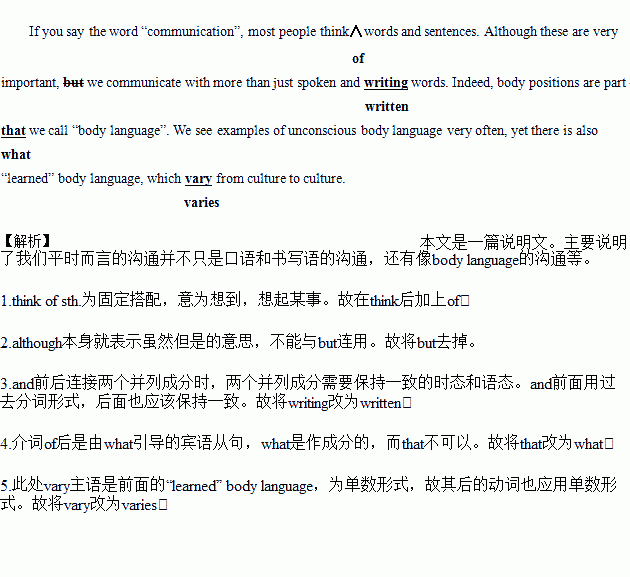题目内容
假定英语课上老师要求同桌之间交换修改作文,请你修改你同桌写的以下作文,文中共有5处错误,每句中最多有两处。错误涉及一个单词的增加、删除或修改。
增加:在缺词处加一个漏字符号(∧),并在其下面写出该加的词。
删除:把多余的词用斜线(\)划掉。
修改:在错的词下划一横线,并在该词下面写出修改后的词。
注意:1.每处错误及其修改均仅限一词
2.只允许修改5处,多者(从第6处起)不计分。
If you say the word “communication”, most people think words and sentences. Although these are very important, but we communicate with more than just spoken and writing words. Indeed, body positions are part of that we call “body language”. We see examples of unconscious body language very often, yet there is also “learned” body language, which vary from culture to culture.
练习册系列答案
相关题目


 ir teenagers. But last summer, Joanna and Henry noticed a change in their older son: suddenly he seemed to be talking far more to his friends than to his parents. “The door to his room is always shut,” Joanns noted.
ir teenagers. But last summer, Joanna and Henry noticed a change in their older son: suddenly he seemed to be talking far more to his friends than to his parents. “The door to his room is always shut,” Joanns noted. ays to talk and write to them. And they must give their children a mental break, for children also need freedom, though young. Another thing parents should remember is that to be a friend, not a manager, with their children is a better way to know them.
ays to talk and write to them. And they must give their children a mental break, for children also need freedom, though young. Another thing parents should remember is that to be a friend, not a manager, with their children is a better way to know them.